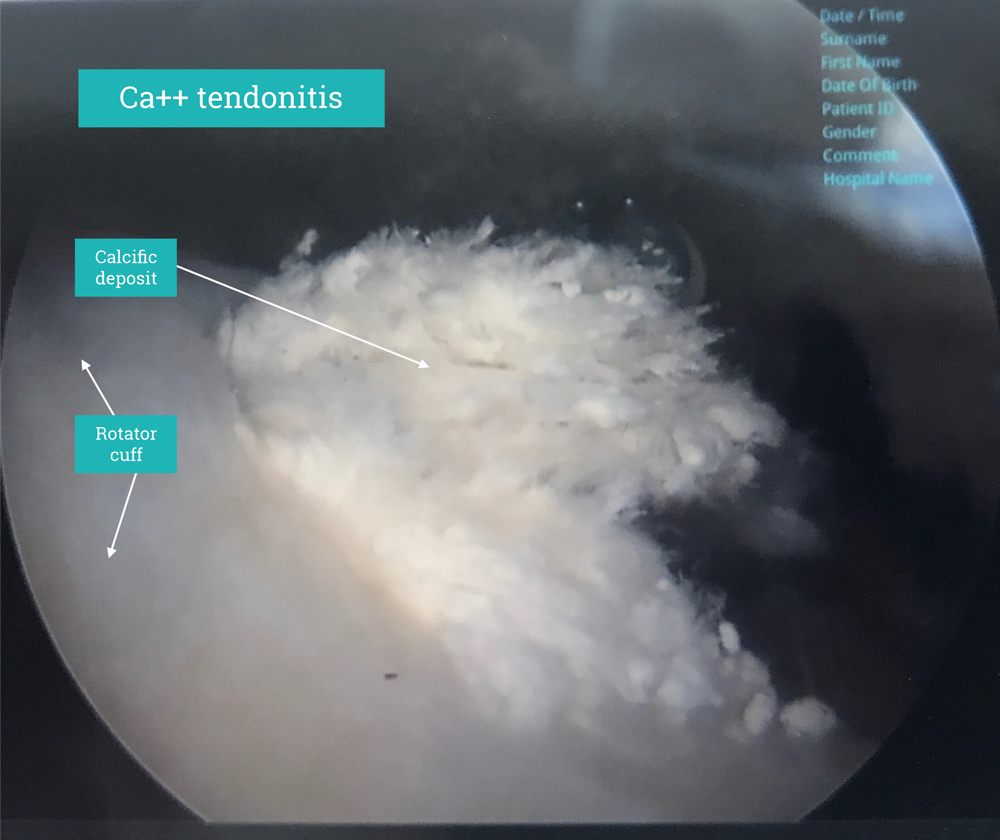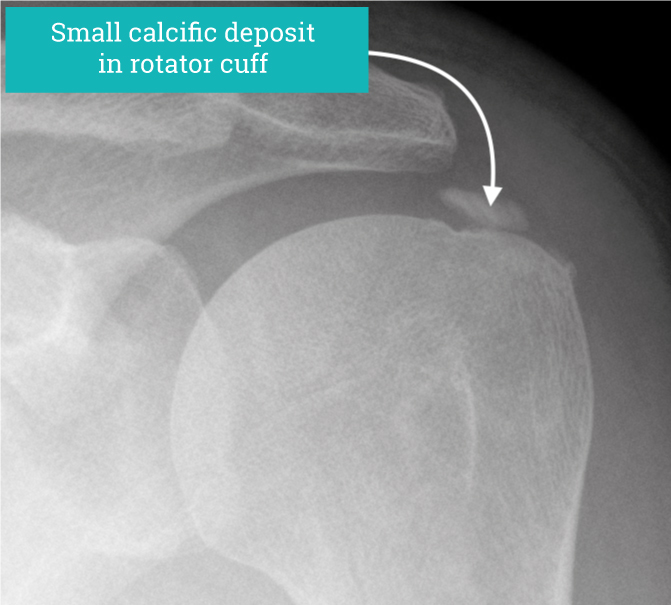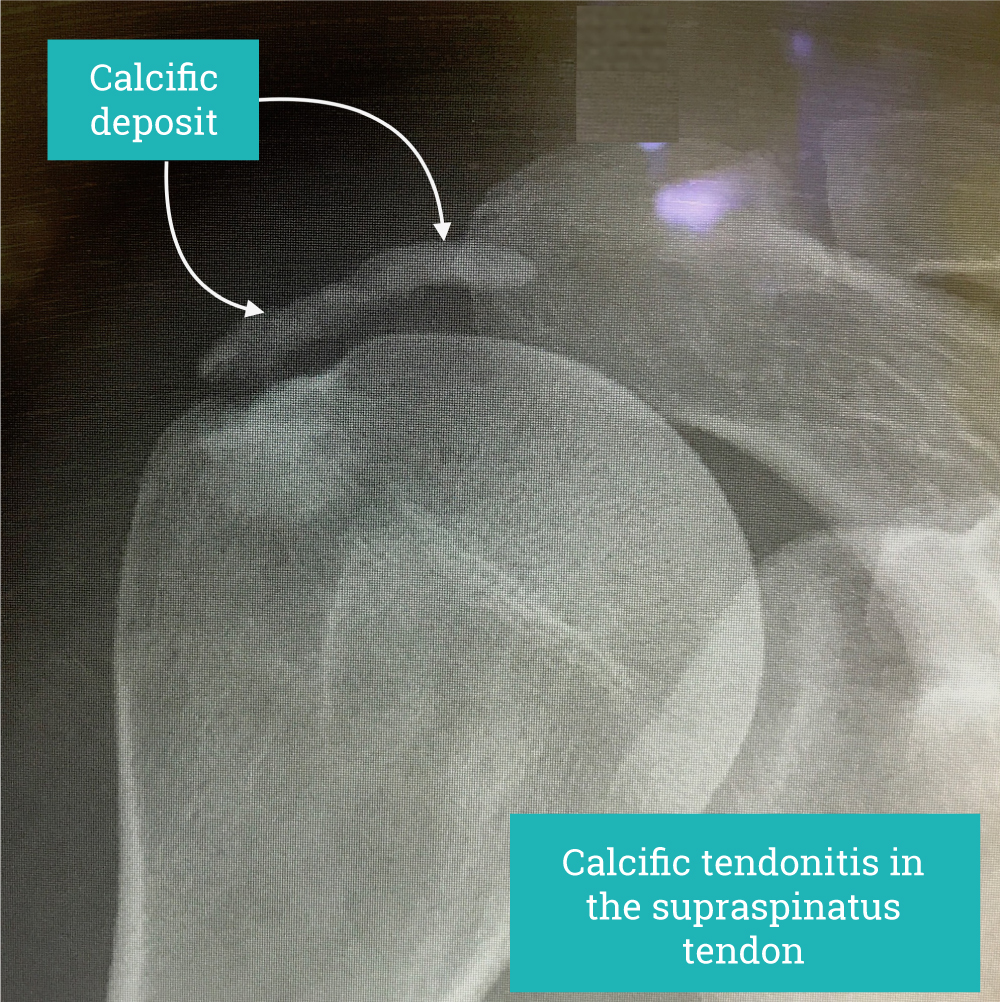
Calcific Tendonitis
This is often asymptomatic and is often seen as an incidental finding on x-ray in individuals without pain.
When symptomatic it typically provokes low grade discomfort which comes and goes over weeks and months. Occasionally these crystals will leak into the subacromial bursa provoking acute and often severe pain lasting about two weeks. It will almost always resolve without long-term problems however its course maybe protracted and require intervention to alleviate pain.
The cause of this condition is not known. It does not appear to be related to diet, systemic disease or hormonal conditions.
The crystals typically form within the rotator cuff and provoke symptoms either locally in the tendon by provoking the release of inflammatory mediators; Leaking into the subacromial bursa around the tendons causing a very acute flare of inflammation or by simply increasing the thickness of the tendon leading it to rub against the acromial bone with shoulder movement resulting in impingement like symptoms.
Treatment is based on the level of symptoms. No pain means no treatment. Low grade discomfort can be managed with activity modification and occasional anti-inflammatoy medication.
Higher levels of pain and an acute flare-up can be treated by the injection of subacromial steroid which acts as a locally acting anti-inflammatory and is effective but may need to be repeated.
Recalcitrant or recurring problems can be addressed by trying to breakup or remove the crystals using radiological techniques such as ultrasound-guided needling or high-energy focused extracorporeal shockwave therapy.
Arthroscopic surgical excision can be effective but may provoke the development of a frozen shoulder.
Capsulitis (frozen shoulder) can occur due to inflammation anywhere around the shoulder and can occur as a direct result of calcific tendonitis.
“This is often asymptomatic and is often seen as an incidental finding on x-ray in individuals without pain.”
Make an appointment
If you wish to make an appointment to discuss your needs further, please get in touch.

Hermitage Medical Clinic
Old Lucan Road
Dublin 20
Call for appointments: 01 6459562
Telephone: +353 1 645 9000
Fax: +353 1 645 9235
Email: info@johnlunn.ie



